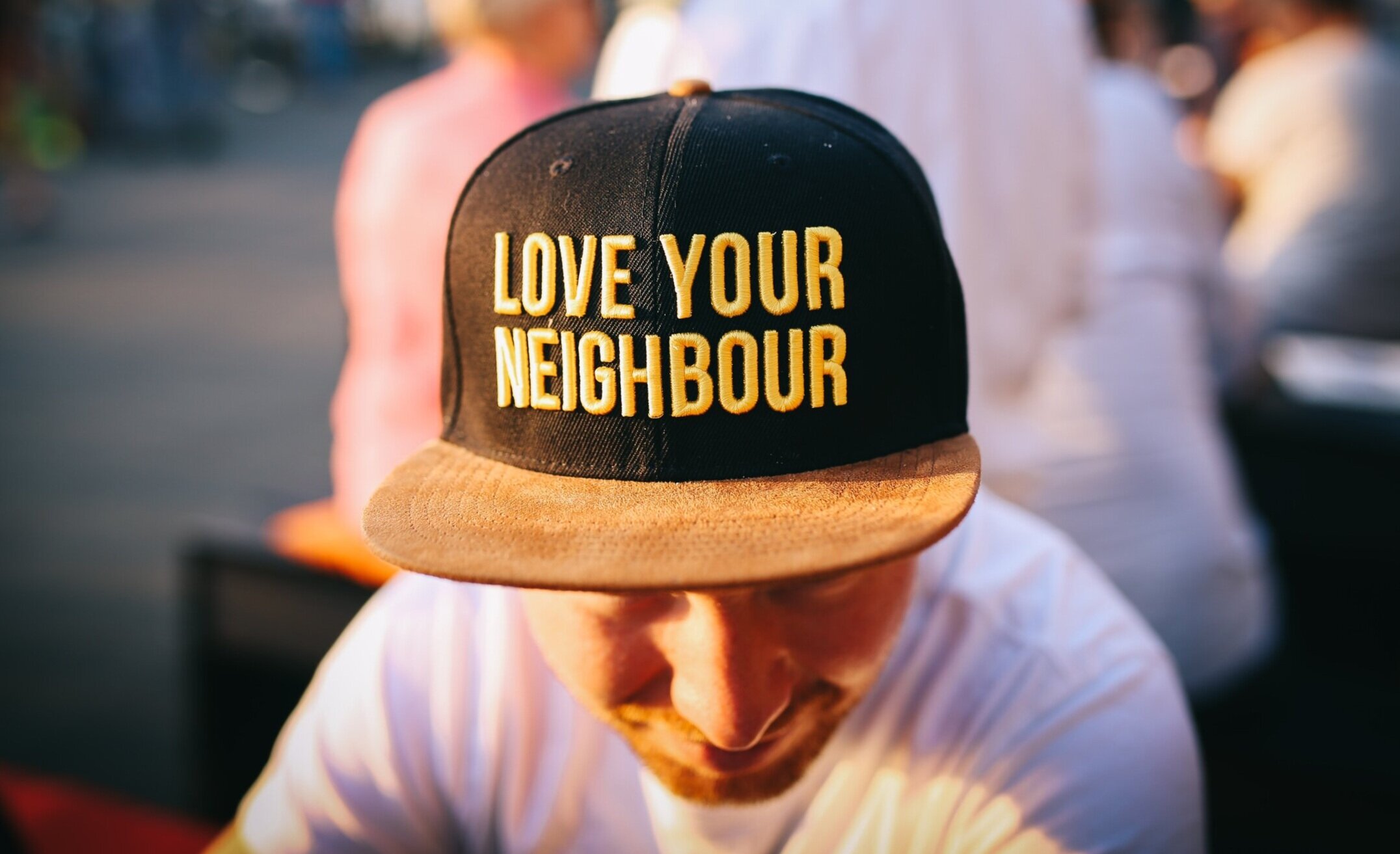6 Ways Your Truth Will Set You Free

“They thought I had cancer,” he told me over the loud music at the bar. “But that wasn’t it at all.”
I nodded as I leaned in closer to catch the end of his story.
“They decided to test me for HIV a few weeks later. And we were all shocked when it came back positive,” he revealed, shocking me in the process as well.
This was the first time anyone had come out to me as HIV-positive.
My right hand instinctively went over my heart as tears welled up in my eyes. There we stood, two friends who hadn’t seen each other in 10 years, sharing the reality of a decade of trials and tribulations.
It was a beautiful moment of vulnerability I will never forget.
I embraced him and thanked him for having the courage to share his truth with me. And I listened as he divulged the despair of his experience. Eventually, I returned the favor by sharing some of my own traumas in the years that had transpired since we’d last seen each other. He listened intently and offered his condolences for my struggles.
We parted ways later that evening, but I couldn’t shake the depth of respect we shared with one another in that crowded club. I replayed the conversation over and over in my head on the cab ride home. As I looked out the window, I smiled at the deep sense of connection I felt to this person that, in all reality, I barely knew after so many years apart. It was in that moment that I realized I no longer enjoyed small talk. I realized the power of sincerity. I realized that the truth will always set you free.
Throughout my life, I’ve witnessed the beauty of what it means to release the burden of shame in favor of honesty and openness. It’s the truth at the crux of every coming out story. It’s the truth of every hurt, heartbreak or health challenge you’ll ever experience. It’s the truth of #MeToo, #TimesUp and every movement that ever existed. It’s the declaration that your experience is valid. It’s the revelation that, against any narrative to the contrary, you belong here. And you always will.
It’s the same universal truth that Jonathan Van Ness, star of Netflix’s Queer Eye, reaffirmed in his deeply revealing interview in The New York Times, where he shared his struggles with addiction, sexual abuse and living with HIV.
“I want people to realize you’re never too broken to be fixed,” Van Ness said.
What he might not realize is just how many broken hearts he’s touched by the heroism it took to share his story publicly. His truth—like yours and mine—has ripple effects, and its echoes will empower countless people to pick up the pieces and build something more beautiful from the rubble in which they find themselves.
Life is a piece of art delicately assembled over time. We don’t get to choose the paint, but we do get to form the painting. JVN and my friend, like countless others before them, stood in the light of their art—their truth—and stopped declaring it unworthy. And, in doing so, affirmed their gorgeous, imperfect, inherent beauty.
Below, I share six ways that sharing your truth will set you free. Because true healing occurs at the intersection of honesty and bravery. And, just like Jonathan Van Ness, you deserve to know that you are seen and understood.
No matter what.
6 Ways Your Truth Will Set You Free
1. Sharing your truth is how you reclaim your power.
The moment you share your story with the world is the moment you reclaim your power. Standing up and refusing to let the inner critic that says you’re not worthy have dominion over you any longer allows you to instantly reassert your worth. When you own your truth in this way, you show the Universe that you’re ready to stop playing small—that you’re ready to embrace love instead of hate and light instead of darkness.
There’s a veil of secrecy that shrouds those who suffer in silence. When the truth comes out and the veil is lifted, the light can finally cast out the darkness to reveal the beautiful sense of belonging beneath.
Brené Brown discusses this in her book, Braving the Wilderness, when she writes:
“Belonging so fully to yourself that you're willing to stand alone is a wilderness—an untamed, unpredictable place of solitude and searching. It is a place as dangerous as it is breathtaking, a place as sought after as it is feared. The wilderness can often feel unholy because we can't control it, or what people think about our choice of whether to venture into that vastness or not. But it turns out to be the place of true belonging, and it's the bravest and most sacred place you will ever stand.”
And that’s a purity of spirit that only you can own. By standing first and foremost on your own. In your truth.
2. Sharing your truth is how you live authentically.
As I’ve written before, honesty and openness are oxygen for authenticity to thrive.
As social animals, it is our natural inclination to share our experiences with others. It’s when we deny our feelings, bottle up our emotions and remain silent about our experiences that we lose our way.
But as long as you stay true to you and remain committed to being open—no matter how painful or difficult it might be—you will be auspiciously authentic and gratifyingly genuine.
You will reveal the joy that comes with just being you.
3. Sharing your truth will genuinely empower others.
A stranger once asked me why members of the LGBTQ+ community feel the need to come out at all. The answer is simple: As humans, we all have a deep yearning to be seen, heard and understood. Sharing the truth of who you are and what you’ve endured helps to give visibility to your pain, and therefore summon healing into your heart by letting you know that you’re not alone in that pain. And the more visibility, the more understanding. And the more healing, too.
That’s why we still celebrate National Coming Out Day, Pride Month and more. That’s why speaking out is important. That’s why your story so desperately longs to be shared.
The more we call out the realities of our struggles, the more we realize that it’s not so unbearable after all. We mobilize others with our tears, our truth and our fears.
If I can make it through, then so can you.
4. Sharing your truth will help you grow.
There’s purpose in pain. There’s meaning in madness. There’s triumph in truth. But not if you don’t learn from the roles they play in your story. And that starts with admitting they played a part at all.
Life is ultimately about growth. The fuel for your journey will come in many forms. It’s up to you to take your highs and lows and use them both to propel you forward.
That’s how you turn lemons into lemonade. That’s how you turn the tables. That’s how you show it all meant something.
5. Sharing your truth is how you build genuine connections.
Whether it’s talking about trauma, opening up about your mental health or discussing a small hurdle in your day, people appreciate it when you keep it real and cut the bullshit. Truth is, when you open your heart and share your experiences with the world, you create a sacred space that encourages genuine interactions by pushing past the day-to-day banter and getting to the crux of the human experience.
We all go through hurt and heartbreak. It’s only when we open up to others about our adversity that they see that we’re just like them.
And they’re just like us, too.
6. Sharing your truth is a fierce form of self-love.
“I was too fat, too femme, too loud and too unlovable,” said Van Ness in his Times profile regarding his high school struggles with shame. Flash-forward to today where he’s boldly gender nonbinary, unapologetically strutting a red carpet in heels and a dress and, now, bravely coming out as HIV-positive.
The journey to self-love happens one step at a time. And each step is paved by your truth. Alan Downs expounds upon this in his groundbreaking book, The Velvet Rage:
“When you drop the struggle with shame and accept life as it is without judgment, you find great freedom on the other side. It is freedom to be who you are, exactly as you are. The only real meaning in life is found in being who you are right now, without apologies. You don’t need to be more spiritual, richer, friendlier, better looking, younger, or living on a beach. In this moment, all you need to be is you. Only in that space will you find lasting contentment.”
You are the key to set yourself free. All you have to do is drop the act and say, “Like it or not, this is me. I love what I see.”
How has the truth set you free throughout your life? Share your experiences in the comments below—or Tweet me @crackliffe.




